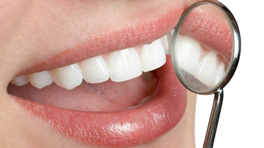TMJ disorders develop for many reasons. You may subconsciously during times of stress or during sleep clench or grind your teeth, tightening your jaw muscles and stressing your jaw joint. You may have sustained damage to your jaw joint or muscles at the time of an accident. Whatever the cause, the results may include misalignment of the teeth, pain, clicking or grating noises when you open your mouth or eat.
It is possible to have a TMJ disorder for a long time without realising it. This is because some of the symptoms, such as headaches, may seem unrelated to your jaw joints and muscles.
Some symptoms that may indicate you have a TMJ problem include
- Grinding or clenching your teeth
- Waking up with sore, stiff muscles around your jaws
- Frequent headaches or neck aches.
- Clicking, popping, or grating noises from your jaw joint.
- Difficulty or pain when opening your mouth to eat, or yawn
- A history of injury to your neck, head or jaw
- Arthritis in other joints
- Teeth that no longer touch when you bite
- Teeth that touch differently from time to time
- Sensitive, loose, broken or worn teeth
- Inability to open your mouth fully
From biting, talking and swallowing, to chewing and yawning, your jaw joints come into play. Therefore when something goes wrong with your jaw joints, it can cause you a great deal of discomfort. With appropriate treatment from Dr Baetz and his dedicated team, most people find relief from the pain and other symptoms of a TMJ disorder.
A thorough dental and medical history and evaluation by Dr Baetz will help to pinpoint the cause of your TMJ disorder. Diagnosis is always the first step in planning a personalised treatment programme.
Physical Therapy
Physical therapy techniques, such as jaw exercises, postural training and learning how to relax your jaw, can help you to regain the harmony in your jaw joints and muscles. Physical therapy promotes healing and reduces pain and swelling. It also aids muscle relaxation and increases your jaw’s range of motion. Appropriate referrals to experienced practitioners will be provided as appropriate.
Occlusal Splint
Dr. Baetz may recommend that you wear an occlusal splint. This custom-made clear plastic appliance fits over your top or bottom teeth and helps to re-establish harmony between your muscles and joints. Splints usually help to relax muscles and reduce pain. They can also change jaw posture enough to stabilise some bite problems and reduce pressure in your joints. It may take a little time to get used to wearing and caring for your splint, but it is an important treatment option.
Bite Correction
If your TMJ disorder has caused problems, which seem to be related to the way your teeth fit together, then you may need treatment to correct your bite. Usually a splint alone is all that is required. Alternative treatment solutions, such as minor bite adjustments or infrequently orthodontics or restorative procedures to correct more serious bite problems may need to be considered.
Surgery
With other treatment options available, surgery is rarely needed, especially if a problem is diagnosed and treated early and usually surgery is only considered as a last resort.
Please note any surgical or invasive procedure carries risk. Before proceeding, you should seek a second opinion by a suitably qualified healthcare professional.






